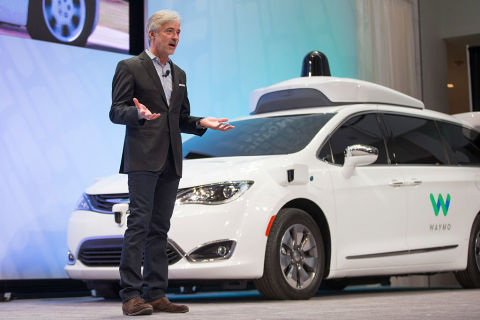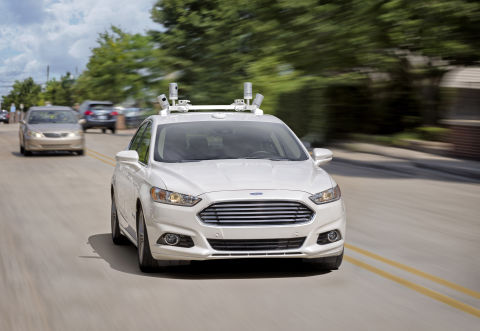Chuck Tannert reports in Popular Mechanics:
"You have to build one with clean IP. That is nearly impossible. The consequence is that everybody's going to be infringing everybody's patents eventually." The implication, in this case, is that everybody will be blocked from building the best version of the product being developed unless all participants play well together. (But) the leaders in this space are willing to spend more time in court over the next five years protecting their self-driving patents than perfecting the driverless car.
You've heard the self-driving car is coming. Thirteen of the world's 14 largest automakers, including Audi, BMW, Ford, GM, and Tesla, have said they will bring autonomous vehicles to market within the next five or so years. Twelve of the 14 largest technology companies, such as Apple, Google, Intel, and Samsung, plan to build the technologies needed to support and operate autonomous vehicles.Combined, they are spending billions to develop advanced sensor and battery technologies, futuristic human-machine interfaces, intelligent driving computers, and other technologies that are essential to removing the human element (you) from the driving equation in the name safety. Or so they'd like you to think.Advertisement - ContinueThese companies are not doing all this for purely altruistic reasons. Like any transformative technology, the revenue opportunities in the AV space are enormous. According to a recent study by Intel and research firm Strategy Analytics, AVs will be the backbone of a $7 trillion-dollar a year marketplace by 2050. "Once money is involved, as innovators transition into commercial enterprises, things get complicated," says Bryan Reimer, Research Scientist in the MIT's AgeLab and the Associate Director of The New England University Transportation Center at MIT.One way things are starting to get complicated is that innovators seem to be more interested in protecting their inventions or innovations rather than transforming the future of mobility, the goal of all of the research and development. The fear is that courts will soon get clogged with patent lawsuits and innovation grinds to a halt. You've seen what patent wars have done in the smartphone sphere, as Apple and Samsung sued and countersued each other, which is why smartphones haven't evolved significantly in the past decade. What if the self-driving car gets stalled in the courtroom?Can You Build an Autonomous Car Without Stepping on a Patent?
Ideally, there would be collaborative contractual development to further the AV cause. You've got chocolate. I have peanut butter. Let's work together for the betterment of humanity. Reimer says this type of concerted industry-wide effort is the only way mobility can really to be transformed, if indeed these vehicles are going to "communicate and work together over a standard network that has not yet been defined." In fact, some consolidation is appearing. Autoliv and Volvo have teamed up to form a new company Zenutity. Bosch and Daimler have a new co-development agreement. Others could follow. Even Google has patterned plenty with the big three automakers and said it now plans to partner with other companies rather than trying to build the self-driving car all by itself.Unfortunately, all AV innovators aren't ready to play well together. "Instead, they are primed to vehemently protect their intellectual property, or more broadly, talent, as usual," says Reimer. "Look at the impending fireworks between Google and Uber, for instance."






















0 comments:
Post a Comment